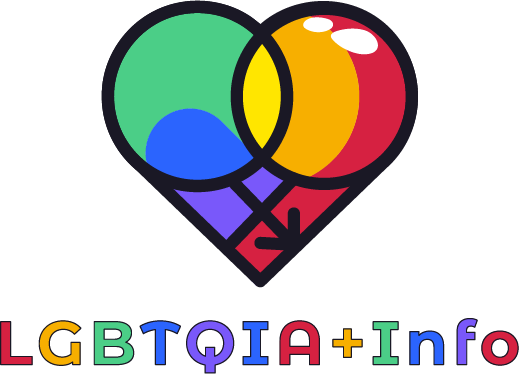For a very long time, transgender individuals have been excluded from society and treated unfairly. People who identify as transgender are more likely to be victims of physical assault and verbal abuse than the general population. Here, we’ll define transgender rights and explain how you may become an advocate for them.
What are transgender rights?
Transgender rights refer to the entitlement of transgender people to social, legal, and medical protections based on their gender identity. Some examples of these protections include the right to get medical treatment, the right to be treated equally in the workplace and in housing, the right to safety from physical harm and verbal abuse, and the right to have their gender identity reflected in official records.
The History of transgender rights
Although transgender rights have been debated for quite some time, it wasn’t until the late 20th century that the problem received widespread attention. The Society for Individual Rights, founded in San Francisco in the 1960s, is credited as the first transgender advocacy group in history. Transgender rights activists started their efforts in the 1970s, and the 1980s and 1990s saw an increase in media coverage of the community.
The current state of transgender rights
Transgender people still experience prejudice and violence, despite some improvements in recent years. Important safeguards for transgender children in public schools have been rolled down, and the Trump administration has tried to bar transgender people from serving in the military. Vice President Joe Biden has signed an executive order prohibiting discrimination based on gender identity in the military and has restored safeguards for transgender pupils.
Discover the facts and figures on transgender people’s demographics and statistics by clicking this link.

Legal protections for transgender individuals
Different countries and states have different laws in place to safeguard transgender people. Several states in the United States have approved legislation to guarantee transgender people equal access to work, housing, and public spaces. The federal government also guarantees some safeguards, such as the absence of discrimination in access to medical treatment and academic opportunities. There is still a lot of prejudice toward transgender people.
How to advocate for transgender rights
Transgender rights activism may take numerous shapes. You may advocate for transgender rights by writing letters to your politicians, attending rallies, and donating to groups. Learning about trans problems and being an outspoken supporter of trans people is also crucial.
Find out more about the importance of transgender visibility and representation by reading this article.
Resources for transgender individuals
Individuals who identify as transgender may endure prejudice, limited access to healthcare, and homelessness. Many groups exist to help transgender people, such as the Transgender Law Center and the National Center for Transgender Equality.
Misconceptions about transgender individuals
Some people mistakenly believe that transgender people are making a conscious decision or that they have a mental illness. Misconceptions about transgender people are a major cause of prejudice and violence against them.

How to be an ally to transgender individuals
To be an ally to transgender people, you must show them support and fight for their civil rights. It entails learning about transgender problems, making a public stand against prejudice and violence, and using the appropriate pronouns.
Challenges Faced by transgender individuals
Transgender people have to deal with a lot of difficulties on a regular basis. Discrimination in areas such as work, housing, and healthcare is a major obstacle. Violence and harassment against transgender people are also far more common than they are for the general population. It’s possible that they’ll have trouble obtaining proper identification and obtaining gender-affirming medical treatment.
Healthcare access for transgender individuals
Transgender people face considerable barriers to receiving medical treatment. A lack of understanding regarding transgender problems among healthcare personnel might lead to poor care. Discrimination against transgender people is not limited to the workplace. Transgender people must actively seek out medical professionals who understand their needs and concerns and must be their own strongest advocates.
Employment Discrimination and transgender rights
Discrimination against transgender people is a common problem in the workplace. Because of their gender identification, they may be discriminated against in the workplace. Harassment in the workplace is another issue they may confront. Despite the passage of legislation in some states to protect transgender people from discrimination in the workplace, transgender people are still subject to bias.

Transgender Rights in Education
Many obstacles exist for transgender kids in the educational setting. They could not have access to safe spaces like gender-neutral restrooms or be treated differently by instructors and classmates. Department of Education guidelines intended to safeguard transgender kids have been reversed in several jurisdictions.
Transgender Rights and the criminal justice system
The criminal justice system is particularly difficult for transgender people. While in prison, they may be at risk of being assaulted or harassed and may not have access to adequate medical treatment. People who identify as transgender are also more likely to be harassed by police and treated unfairly by the law.
To learn more about the significance of coming out and its impact on the individual and their community, read our informative guide.
International transgender rights
Transgender rights are not universally protected. Transgender people have the right to equal healthcare and protection under the law in several nations. Transgender people are vulnerable to severe prejudice and violence in several foreign nations.
Conclusion
Transgender people should be allowed to live and interact with others in accordance with the gender they identify with. There are still major obstacles in their way of life, however. Everyone needs to learn about transgender problems and speak out for transgender rights.
Our website is dedicated to promoting equality and celebrating the diversity of the LGBTQIA+ community. Join us in our mission by visiting our website and learning more.

